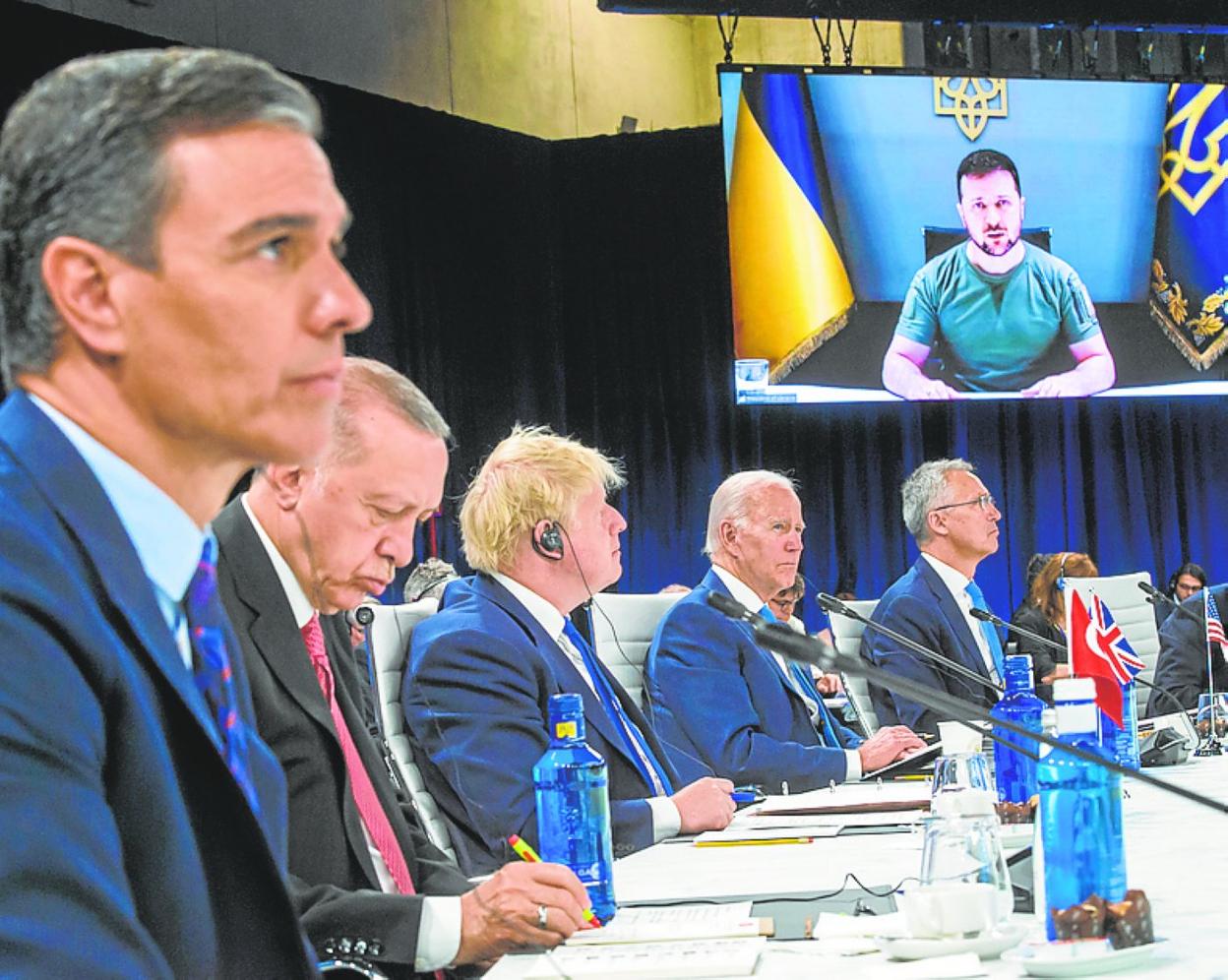Madrid hosts key summit of Nato leaders against the backdrop of war in Ukraine
Thousands of representatives from some 40 delegations have been in the capital this week amid a massive security operation
NEIL HESKETH / SUR
MALAGA / MADRID.
Friday, 1 July 2022, 13:01
The Spanish government hosted the annual summit of Nato leaders in Madrid from Tuesday to Thursday this week.
Large parts of the city centre were at a standstill, roads were cordoned off and 'madrileños' were told to work from home to cope with the thousands of attendees from some 40 delegations including the 30 member states plus associated countries and organisations. The American delegation alone had a reported 1,200 rooms reserved across three luxury hotels.
This was an important opportunity for Spain to showcase to the world both its ability to organise large-scale events and the cultural attractions of Madrid.
However the real focus of the leaders was on reaffirming the purpose of the Nato alliance, which has been reinvigorated since Russia's invasion of Ukraine. Ukraine's President Zelensky joined by video conference on Wednesday.
At a landmark meeting on the sidelines on Tuesday evening, Turkey agreed to drop its objection to Finland and Sweden joining the defence alliance amid fears of what Putin might do next.
Russia's 'retaliation' at the summit was for its space agency to conveniently release a high-definition close-up satellite image of Madrid's huge Ifema conference centre where the leaders were to meet.
For the first time, Nato agreed to mark China down as a threat to its members' interests due to its cybersecurity activity.
The need to spend more on defence, particularly the European nations and Canada, was key to discussions. In preparing what was billed as the biggest joint statement by the alliance since it was founded in 1949, leaders discussed adjusting to a new world order, stating once again the aim to have each country spending at least two per cent of their economic output on defence.
Biden meets with Sánchez
On Tuesday afternoon, ahead of the opening banquet at the Royal Palace, US President Joe Biden held a one-to-one meeting with Spanish Prime Minister Pedro Sánchez at the PM's official La Moncloa residence.
Afterwards it was announced that America wants to base two more destroyers at the key naval base it has in Spain at Rota, Cadiz Province. The move will need Spanish parliamentary approval and there were signs this week that the more left-wing coalition parties in Sánchez's governing coalition could try to block the idea.
Sánchez has said he hopes to get Spain's defence spending up to 25 billion euros.
